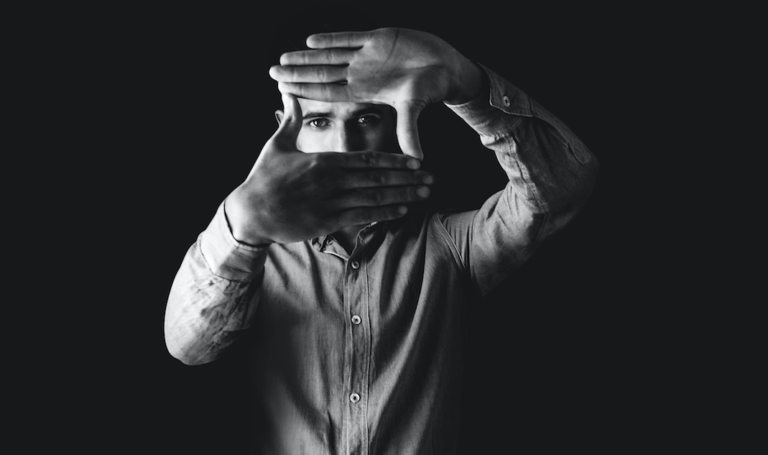When you smile for the camera next time you’re at an event you might get more than a souvenir photo – you could even be handed your favourite tipple without having to ask for it.
That’s because facial recognition technology is making it possible to personalise the event experience more than ever before. Panos Moutafis, President of Zenus Biometrics, says the potential for the technology in the events world is huge.
“There are lots of applications where you can implement technology like AI or chatbots with facial recognition to create a truly personalised experience – it’s going to be very futuristic.”
The US-based start-up, which is developing facial recognition software for the events industry, demonstrated its capabilities at Event Tech Live in London recently. Zenus partnered with fellow event tech provider ExpoPlatform to create screens that attendees could stand in front of to automatically be shown their personalised agendas.
“One of our closest partners Expo Logic is working on a potential application for when an exhibitor wants to offer beverages,” adds Panos. “When the attendees book a meeting with this exhibitor they will be asked their favourite beverage. Then, as soon as the camera clocks their arrival the barista or barman will start preparing their beverage.”
Another way the tech can be deployed is to reduce queuing to pay for food, drinks or merchandise by scanning people’s faces at check-out and automatically charging their registered payment method.
A little further off is the ability to measure the emotions of crowds, but when it does become possible, it means organisers will be able to understand how much attendees enjoyed their event or individual keynotes, without having to survey them.
According to Panos, “At the moment, you can’t have one camera scanning a whole room of people and know how they feel. From a technical standpoint, this is very hard to implement, mainly because of resolution. You can have super high-resolution cameras but then that would be cost prohibitive.
“However, if you contain the problem and you have just one person looking at the camera that’s quite easy. There are different ways you could use that. Let’s say you’re an exhibitor and somebody comes to your booth; you want to know how engaged they are, you want to know if they were really a good target – this tech would be able to tell you.”
Using facial recognition software to track emotion is something Disney is currently experimenting with. By using cameras to observe people’s expressions as they watch movies, they can understand if scenes are getting the desired reactions.
But more than this, by bringing artificial intelligence into the mix, Disney is able to predict how a member of the audience will react to the rest of a film after analysing their facial expressions for just 10 minutes.
In the future, perhaps event planners will be able to tailor content on the fly to make sure it’s always striking the right tone with the current audience? The possibilities for the development of facial recognition is certainly exciting, but perhaps even more interesting, from an event planner’s perspective, is what you can do with it right now.
The core application that Zenus has been focused on is event registration and check-in. The tech can be used to replace ticket scanning and speed up the entry process, according to Panos.
“On average it takes 15 to 20 seconds to check someone in. If you have ID checks it goes to 45 seconds. With facial recognition, we have brought that down quite significantly.”
The idea for using facial recognition to streamline registration occurred to Panos and his wife Yi Shi (VP of Zenus) when they attended a Beyoncé concert.
He recalls: “It was a hot day and there was a long line and Yi said, “Imagine how much faster we’d go in if we used facial recognition”. Initially, I was sceptical because I thought QR codes work well enough so why do we need facial recognition?
“But we started reaching out to event registration companies and event planners and asked them, “What are your thoughts on facial recognition?”. We got an over 30% positive response rate and I thought, “Maybe we have something here?”’
Panos and Yi spent time researching the cause of delays at event check-in and found that one person not being able to find their ticket or QR code could result in big problems.
“The best comparison we can give is traffic; if traffic slows down on the highway and you come to a stop, you have one small slow down and it creates a bottleneck.”
Zenus teamed up with Expo Logic to run a pilot using its on-site event management system, Field Drive. The trial was conducted at roofing exhibition Belgian Roof Day in Brussels last November.
“We positioned the screen at the beginning of the face recognition line, so as people approached the registration area they were being identified. While they were still walking, the badge was being printed. They could pick it up and leave.”
In terms of accuracy, Zenus’ software is extremely high. “Our system can search the database of 1,000 faces and find the most likely match 99.4% of the time. The attendee or host can then tap on the face to confirm it is correct,” says Panos.
However, the more attendees at an event, the harder it becomes to correctly identify them. This is an issue Zenus is working hard to fix.
“The accuracy of facial recognition goes down when you have more and more people. If you have an event with 10,000 attendees, the accuracy will drop exponentially. However, we are close to getting high accuracy for events at this size as well. Pilots at this scale are expected within the next few months.”
Despite the teething problems, Zenus’ software still comes as a boon to events where high security is necessary, as it can add a second layer of checks without slowing down registration.
“When you have ID checks, the process slows down a lot because you need to scan your ticket, then supply your ID and have it verified before your badge is printed. One way to make the process faster is to enable people to provide their picture and ID before the event. You still have the QR code on your ticket but when you’re doing self-check-in the camera will open up and make sure that this is the right person.”
Meanwhile, as event planners get savvier about data protection, Panos and his team have ensured they can rest easy when working with them. All attendee data remains within the online registration system the event organiser is using (such as Eventbrite), with Zenus only receiving images.
“All the registration company sends us is anonymous images,” he explains. “This happens over securely encrypted channels. When we receive the images we are processing them to extract the face measurements and then we immediately delete the image. We then send back a unique identifier that’s associated with each image without ever having accessed personal information. It gives the event planner peace of mind that the data is being handled properly. After the event, we completely delete the entire database associated with the event.”
Panos adds: “Any registration company can integrate our technology. We hope to do a full integration with Eventbrite in the future – we have a lot of requests from event planners. We may do a one-way integration, so Eventbrite has an API that allows us to pull the data. Then the event planner would be able to send an email to their attendees and ask them if they want to opt in and send a link where they can upload their picture.”
As well as establishing more integrations with registration providers, other plans for Zenus include introducing crowd analytics functionality.
“Crowd analytics will be able to scan faces in a space and tell you how many people are in there. It is also possible to extract demographic data such as age or gender, and so forth. We are going to do all of these things in the future but we prefer to do one thing at a time and make it perfect before we move onto the next thing.”
Looks like we’ll have to keep our gaze trained on the camera lens to see what’s next…
Could the use of facial recognition at your event save you tons of time on check-in? Is it the answer to better security? What other applications can you think of for this tech? Join the discussion over on the EventTribe forum.





